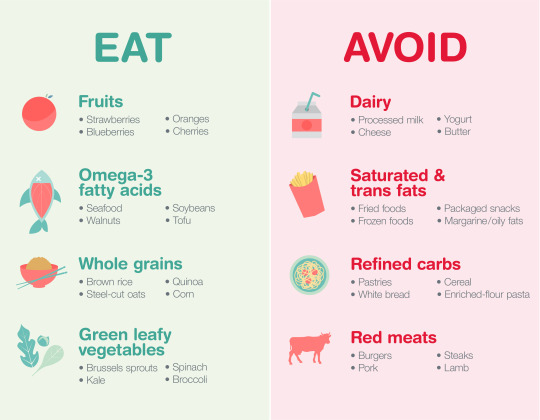
See how certain foods might help (or harm) your achy symptoms.
What is Inflammation?
Short-term
inflammation is your body’s natural defense to toxins, infections and injuries.
When your cells sense distress, they release chemicals to alert your immune system.
Then, your immune system produces an
army to fight off harmful germs and dead or damaged cells caused by the toxin, infection
or injury. Blood vessels leak fluid into the site of the injury to protect
healthy tissues, and the complex healing process results in pain, redness and swelling.
But when inflammation is long-term or chronic, your body is constantly on high
alert. Certain diseases or autoimmune disorders, such as arthritis or lupus, can
send false signals to your immune system to initiate an inflammatory response,
even when there’s no infection or injury to fight off. This results in your
body attacking healthy tissues.
Some
experts have even found that chronic inflammation may have a part in triggering
illnesses, such as heart disease, certain cancers and possibly Alzheimer’s
disease.
How Can Your Meal Plan Impact
Inflammation?
Research
suggests there is a link between nutrients and inflammatory processes in the
body. Some foods are believed to encourage inflammation while others may have
an anti-inflammatory effect. Diets high in saturated fats, found in foods like red
meat and butter, and trans fats found in many processed foods are believed to
trigger inflammation, as well as meal plans that are rich in refined
carbohydrates, such as white bread and pastries are associated with long-term
inflammation.
Foods that may have an anti-inflammatory effect are rich
in omega-3 fatty acids, antioxidants and polyphenols. In general, aim for an
overall healthy diet that includes fruits, vegetables, whole grains, oily fish and heart healthy fats like avocados and olive oil.

More research is needed to prove that
any one particular diet can truly reduce inflammation. Talk to your doctor or registered
dietitian to adapt a healthy meal plan that’s right for you.
In addition to watching what you eat, good ways
to reduce inflammation are to avoid smoking
cigarettes, reduce alcohol intake, get enough sleep, and maintain a healthy
body weight.
Sources:
1. WebMD,
“Anti-inflammatory Diet: Road to Good Health?” accessed October 4, 2012, http://www.webmd.com/food-recipes/features/anti-inflammatory-diet-road-to-good-health.
2. Kiecolt-Glaser,
J. Psychosomatic Medicine, April, 2007; vol 69: pp 217-224. https://www.ncbi.nlm.nih.gov/pmc/articles/PMC2856352/.
3. “Dr.
Weil’s Anti-Inflammatory Food Pyramid.” accessed September 11, 2012, http://www.drweil.com/drw/u/ART02995/Dr-Weil-Anti-Inflammatory-Food-Pyramid.html.
4 “Omega
3 fatty acids: what can high-omega-3 foods do for you?” accessed September 11,
2012, http://whfoods.org/genpage.php?tname=nutrient&dbid=84.

